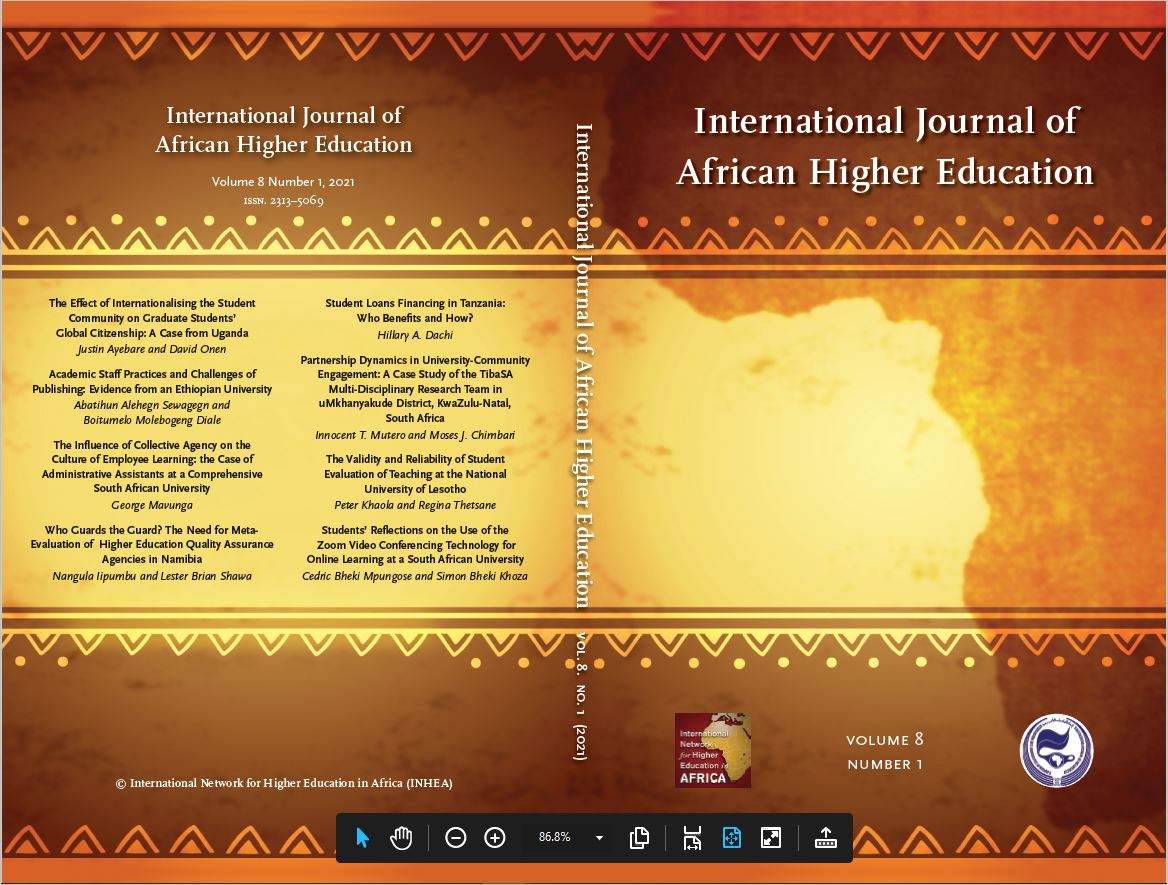The Validity and Reliability of Student Evaluation of Teaching at the National University of Lesotho
DOI:
https://doi.org/10.6017/ijahe.v8i1.13367Abstract
Many Higher Education Institutions use the Student Evaluation of Teaching (SET) scale to evaluate the quality of instructors’ teaching. It includes students’ evaluation of the teacher, the teaching process, teaching approaches and the learning outcomes. Due to its reported dubious reliability and validity, and inherent bias in measuring the quality of teaching, SET remains a hotly debated and controversial instrument. This study evaluated the
reliability and validity of the SET scale adopted by the National University of Lesotho. Self-administered SET questionnaires were distributed to 104 third- and fourth-year Bachelor of Commerce students to evaluate ten lecturers, resulting in 751 assessment records. The data were analysed using the Statistical Package for the Social Sciences (SPSS) and Partial Least Squares Structural Equation Modelling (PLS-SEM). While the findings suggest that the SET instrument used at the university is reasonably reliable and valid, minor concerns were raised with regard to discriminant validity, and serious concerns in relation to content validity. Based on the existing literature and the psychometric properties of this SET instrument, it is recommended that university management exercise caution in using its results to make evaluative personnel decisions such as promotions, confirmations, and dismissals. It is also recommended that the SET instrument should be revised and validated and be primarily used for formative purposes such as obtaining feedback for the development of individual instructors.
Key words: formative assessment, reliability, student evaluation of teaching, summative assessment, validity
Downloads
Published
How to Cite
Issue
Section
License
Copyright (c) 2021 Peter Khaola, Regina Thetsane

This work is licensed under a Creative Commons Attribution-NonCommercial-NoDerivatives 4.0 International License.

